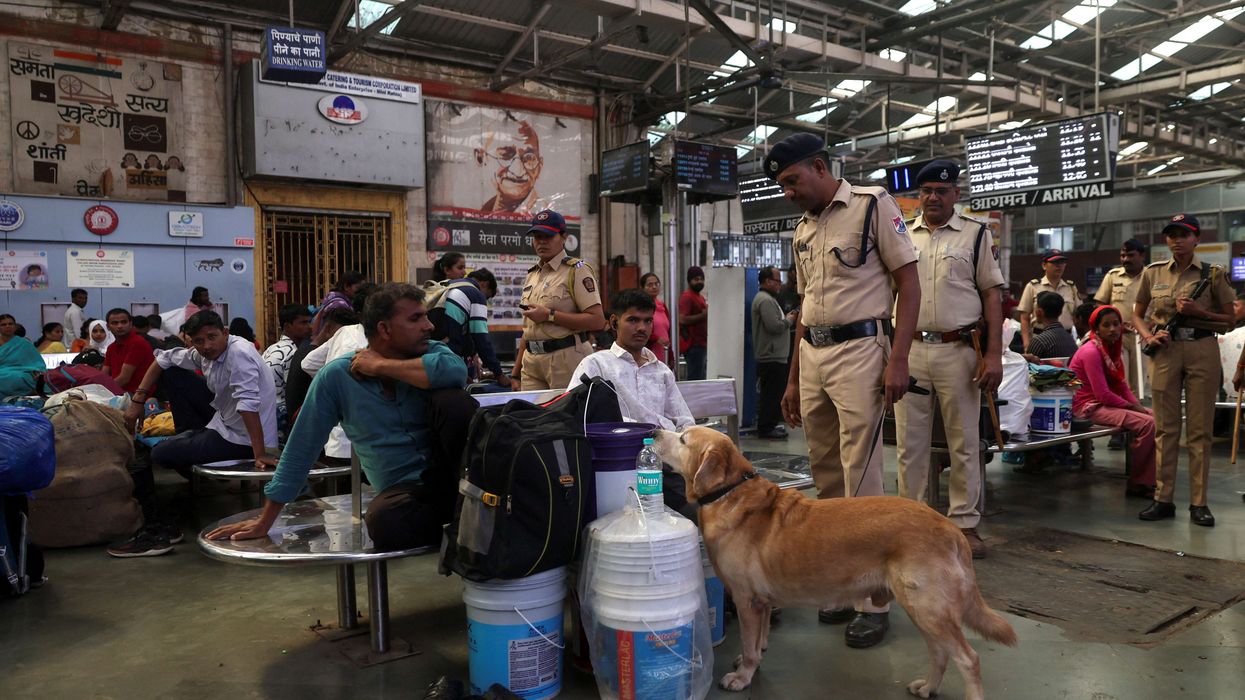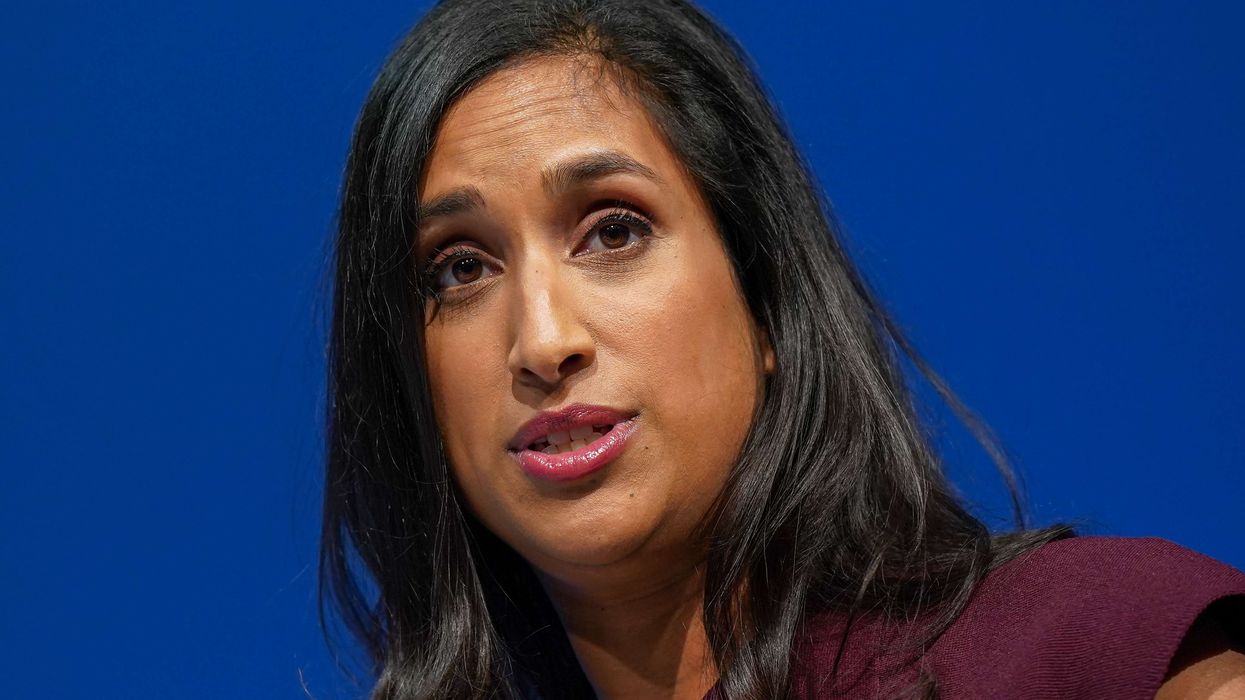BRITISH prime minister Theresa May on Tuesday (2) called for a further extension to Brexit as she offered to meet Labour leader Jeremy Corbyn to agree on a plan that could overcome resistance from MPs to leave the EU.
After a seven-hour meeting with her cabinet, the prime minister confirmed that the UK would seek a further delay to Brexit to allow more time for parliament to pass the deal agreed with the European Union. However, she stressed that the deal must include her withdrawal agreement.
"Leaving with a deal is the best solution," the prime minister said from her Downing Street office in nationally-televised remarks.
"We will need a further extension to Article 50, one that is as short as possible, and which ends when we pass a deal," she added.
“This is a difficult time for everyone, and passions are running high on all sides of the argument, but we can and must find the compromises which will deliver what the British people voted for.
“This is a divisive moment in the story of these islands, and it requires national unity to deliver the national interest.”
EU leaders agreed to extend the original March 29 Brexit deadline until April 12 to avoid a chaotic "no-deal" ending to the 46-year EU-UK partnership
The prime minister added that the 27 EU leaders would need to know why Brexit should be pushed back again before approving her request, which needs unanimous support.
"We need to be clear what such an extension is for to ensure we leave in a timely and orderly way," she said.
"This debate, this division, cannot drag on much longer."
She added that she wanted the process to be finished by May 22, so that the UK would not have to take part in the European Parliament elections.
In response to the offer, Corbyn said he was “very happy” to meet the prime minister
to agree on a plan to resolve Brexit.“We will meet the prime minister,” he said. “We recognise that she has made a move, I recognise my responsibility to represent the people that supported Labour in the last election and the people who didn’t support Labour, but nevertheless want certainty and security for their own future and that’s the basis on which we will meet her, and we will have those discussions.”
Following her brief remarks, the chairman of EU leaders Donald Tusk said on Tuesday that European Union leaders should be patient with Britain to find majority support for the deal to exit the EU.
"Even if, after today, we don’t know what the end result will be, let us be patient," Tusk said on Twitter.
Ireland prime minister Leo Varadkar said on Tuesday a no-deal Brexit would be difficult for his country and that European leaders needed to be open to any credible proposals the British government puts forward to break the deadlock.
"We don't want Ireland to be a backdoor to the single market," Varadkar told a press conference after talks with French president Emmanuel Macron in Paris.
A no-deal scenario raises the question of how Ireland would retain seamless cross-border trade with British-governed Northern Ireland, with the frontier between the two becoming the only land border between Britain and the EU's single market.
As well as Irish commitments to the EU, Varadkar said Ireland had to honour the 1998 Good Friday Agreement that ended sectarian conflict on the island of Ireland. He described it as the basis for peace between Ireland and Northern Ireland.
"That's why we have to examine what we can do in (a no-deal) scenario to avoid the emergence of a hard border. We want to make sure that doesn't involve any physical infrastructure and that's a real difficulty."
Prime minister May’s divorce deal with the EU has been defeated three times in the Commons, which on Monday (1) also failed to find a majority of its own for any alternatives.
Meanwhile, two senior MPs put forward a bill that could force the prime minister to delay Brexit rather than take Britain out of the EU on April 12 with no deal.
Conservative former minister Oliver Letwin and Labour MP Yvette Cooper will try to get their bill through the Commons in a single day on Wednesday (3), but it must still then pass the House of Lords.
"Whatever agreement the government or parliament does or doesn't reach over the next few days, the UK will need more time after 12 April if it is to avoid no deal at that point," they said.
If there is no agreement on a unified approach, the prime minister said a number of options for the future relationship of the UK and the EU would put to the Commons in a series of votes to determine which course to pursue.
Shortly after the statement, Cabinet ministers left Downing Street but offered no comment.
If the UK does request an extension, an emergency summit of EU leaders to consider the request would take place next Wednesday (10).
As the prime minister chaired a marathon Cabinet meeting on Tuesday, EU leaders suggested that a no-deal scenario was probable.
Macron said if the UK was not capable of coming to a solution supported by a majority, it had “effectively chosen a no-deal exit on its own”, while the EU chief Brexit negotiator Michel Barnier agreed the UK crashing out of the EU without a deal had “become more likely”.
According to reports, EU leaders still want to avoid the chaos of a "no deal" Brexit, but concern is rising that giving Britain a long delay poses risks of its own and would solve little.
Until Britain is outside the union, the EU member states cannot legally negotiate a new trade relationship.
European negotiators have insisted the deal they signed with the prime minister last November is the only guarantee of an orderly exit.
"Such an extension would carry significant risks for the EU, therefore a strong justification would be needed," Barnier said on Tuesday.
"Many businesses in the EU warn us against the cost of extending uncertainty," he said, citing economic but also political "costs".
If the prime minister gets the deal through parliament, Brexit can be postponed until May 22. However, if she fails again, she may have to ask for more time before a crisis summit next week.
Britain voted by 52 to 48 percent to leave the EU in the 2016 referendum, but the exit process has only exacerbated divisions among the public, MPs and ministers.
Some members of May's cabinet are now pushing for Britain to leave on April 12 whatever happens, but others fear the economic and legal disruption caused by exiting with no deal.
A government analysis leaked to the Daily Mail suggests a "no deal" scenario would undermine Britain's security capabilities, cause a recession, and increase the cost of food by up to 10 percent.
The prime minister said it would be "unacceptable" to ask British voters to take part in European Parliament elections in May, almost three years after they voted to leave the bloc.
(Agencies)












